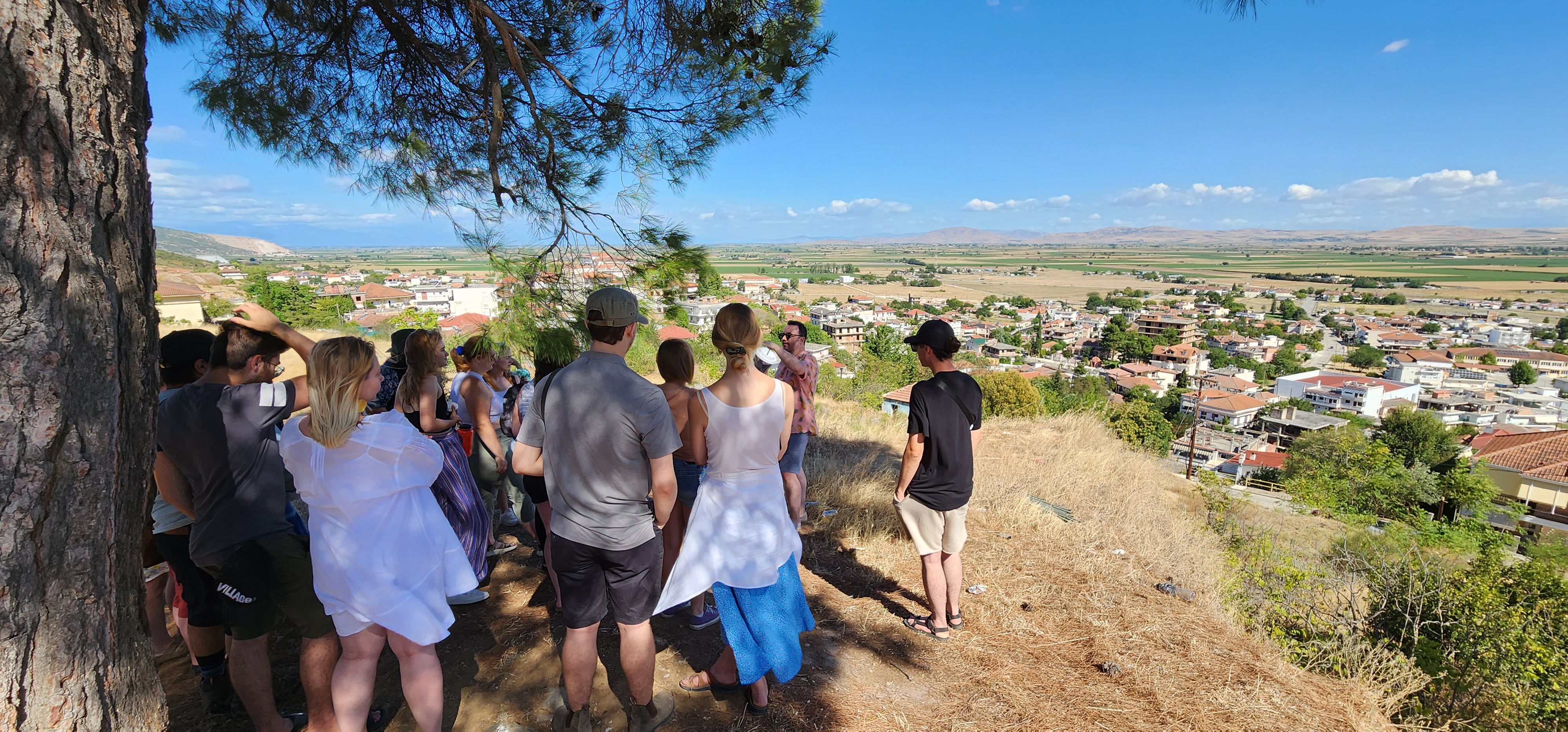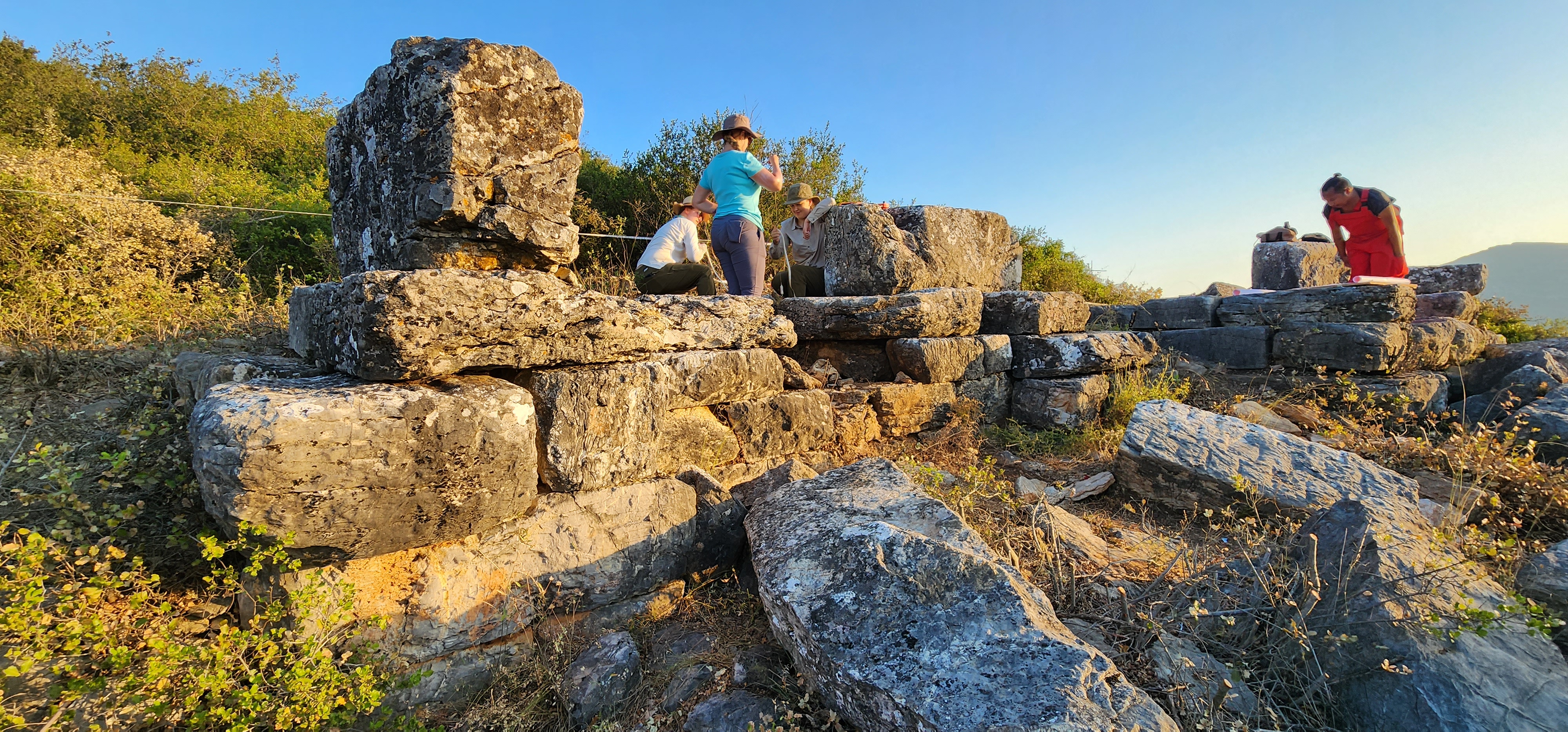Archaeological Field School - Greece

INTERESTED IN ARCHAEOLOGY IN GREECE?
Field School Dates: July 14 - August 4, 2024
2024 will mark the fifth and final fieldwork season of the "Central Achaia Phthiotis Survey (CAPS)" a project focused on landscape archaeology, that developed out of the site-oriented Kastro Kallithea Archaeological Project (KKAP). The Central Achaia Phthiotis Survey is a cooperation between the Hellenic Ministry of Culture, represented by the Ephorate of Antiquities in Larissa and the Canadian Institute in Greece represented by the University of Alberta, Bishop University and specialists from a variety of universities in Europe. The project is community-oriented and receives significant support from the Municipality of Pharsala.
You will be participating in this exciting project as a student team member! You will also receive first rate instruction from experienced archaeologists. The survey will focus on a landscape surrounding a very well preserved fortified Classical-Hellenistic City (Kastro) near the present day village at Kallithea in Thessaly, Greece, that our team has previously studied. The archaeological investigations at this site have now reached a stage where we have obtained sufficient information for publication.
The goal of the project (CAPS) is to study the deep history of the landscape surrounding the ancient city using a variety of archaeological field strategies, including surface survey, GIS, targeted remote sensing and ground-truthing in the form of surface clearing, recording and mapping. Our ultimate aim is to obtain better insight in the ways humans interacted with their natural resources, how they moved through the landscape (transport routes) and how their subsistence economies were embedded in larger networks of trade and exchange. We are especially interested in charting how these aspects change over time and how both landscape and society evolve and transform as part of this dynamic interaction. In our temporal focus we will move far beyond the Classical and Hellenistic habitation history of the city: we expect to find evidence for human activity dating from the Neolithic period to the Ottoman period and later.
This year, our focus will be on the area east of the Classical-Hellenistic city in an area called Paleochori II, the remains of an Ottoman village with a ruined mosque, and remains of Early Iron Age graves.
This six credit course is open to students with a background in Classics, Classical Archaeology, Anthropology, Art History and Ancient History. Students from other disciplines may apply too but are encouraged to contact the project director prior to sending in their application.
NB! These courses will partially fulfill the requirements for the BA with a major in Classics, BA with minor in Classics and the Faculty of Arts Certificates in Archaeology, International Learning and European Studies.
Instructors
Dr Margriet J. Haagsma and Staff

Links to: